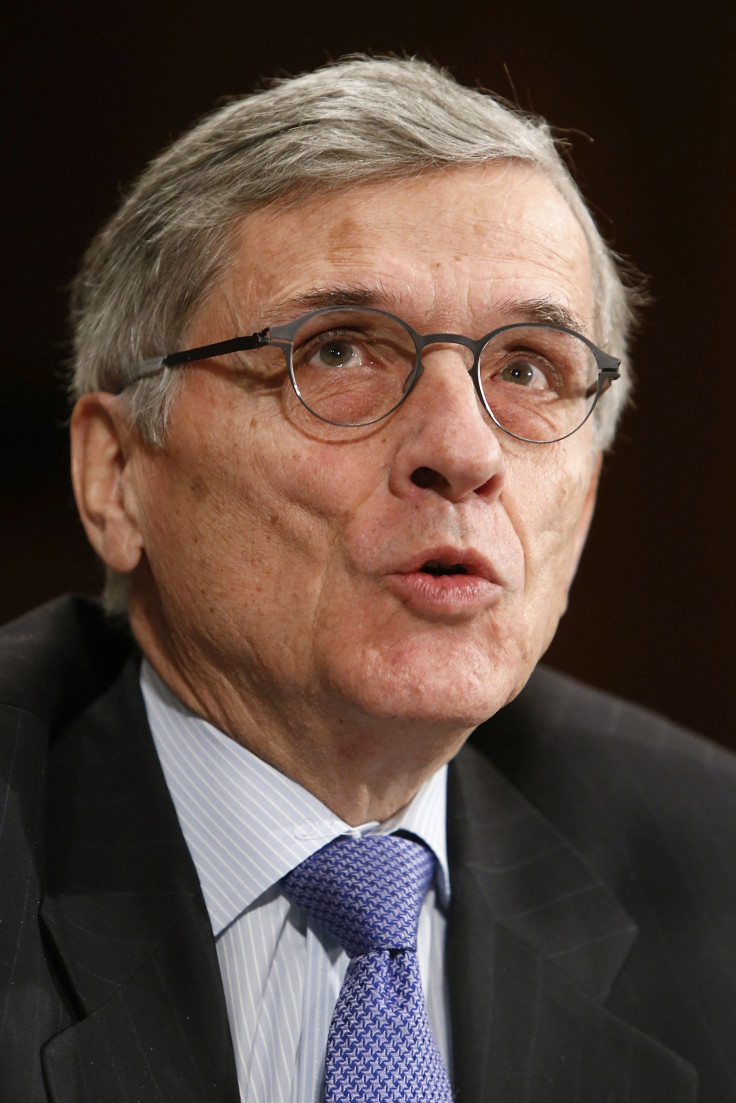Obama Backs Net Neutrality, Urging FCC To 'Keep Internet Free And Open'

President Barack Obama threw his considerable weight behind the concept of "net neutrality" Monday, asking the FCC to reclassify broadband Internet service providers under rules previously written for phone networks. The White House issued a statement calling for the FCC to develop a "plan to keep the Internet free and open," providing a major boost to net neutrality advocates in their battle with cable companies and telecoms, which they fear are exercising too much control over the broadband Internet.
"We cannot allow Internet service providers to restrict the best access or to pick winners and losers in the online marketplace for services and ideas," the president said. "That is why today, I am asking the Federal Communications Commission to answer the call of almost 4 million public comments, and implement the strongest possible rules to protect net neutrality."
"The FCC is an independent agency, and ultimately this decision is theirs alone," he said, noting that he cannot order any ruling. "I believe the FCC should create a new set of rules protecting net neutrality and ensuring that neither the cable company nor the phone company will be able to act as a gatekeeper, restricting what you can do or see online."
Cable stocks immediately began to drop after the White House released Obama’s statement, with Time Warner Cable shares falling by 4.12 percent, Comcast's falling by 3.36 percent and Charter Communications’ dropping by 3.03 percent to 151.63 just after 10 a.m.
Obama urged the agency to adopt regulations laid out under Title II of the Communications Act of 1934. That plan, laid out for copper-wire phone networks, would essentially classify broadband service as a public utility, “while at the same time forbearing from rate regulation and other provisions less relevant to broadband services.”
FCC Chairman Tom Wheeler said in a statement Obama’s recommendation is an “important and welcome” contribution to the ongoing debate.
“Like the president, I believe that the Internet must remain an open platform for free expression, innovation and economic growth,” Wheeler said Monday. “We both oppose Internet fast lanes.”
The White House plan includes four basic concepts: no blocking, no throttling, increased transparency and no paid prioritization.
The proposals take direct aim at the cable industry’s longstanding assertion that it should be allowed to enact paid prioritization for different sites. A site like Google-owned YouTube, for instance, costs ISPs more bandwidth to transmit than a more simple service like email or instant messaging. The problem with that, net neutrality advocates have said, is that the vague parameters and lack of oversight leave enough room for ISPs to charge exorbitant prices while not being forced to prove that the fees are in fact related to their cost.
“Simply put: No service should be stuck in a ‘slow lane’ because it does not pay a fee,” the White House plan stated. “That kind of gatekeeping would undermine the level playing field essential to the Internet’s growth. So, as I have before, I am asking for an explicit ban on paid prioritization and any other restriction that has a similar effect.”
© Copyright IBTimes 2024. All rights reserved.





















